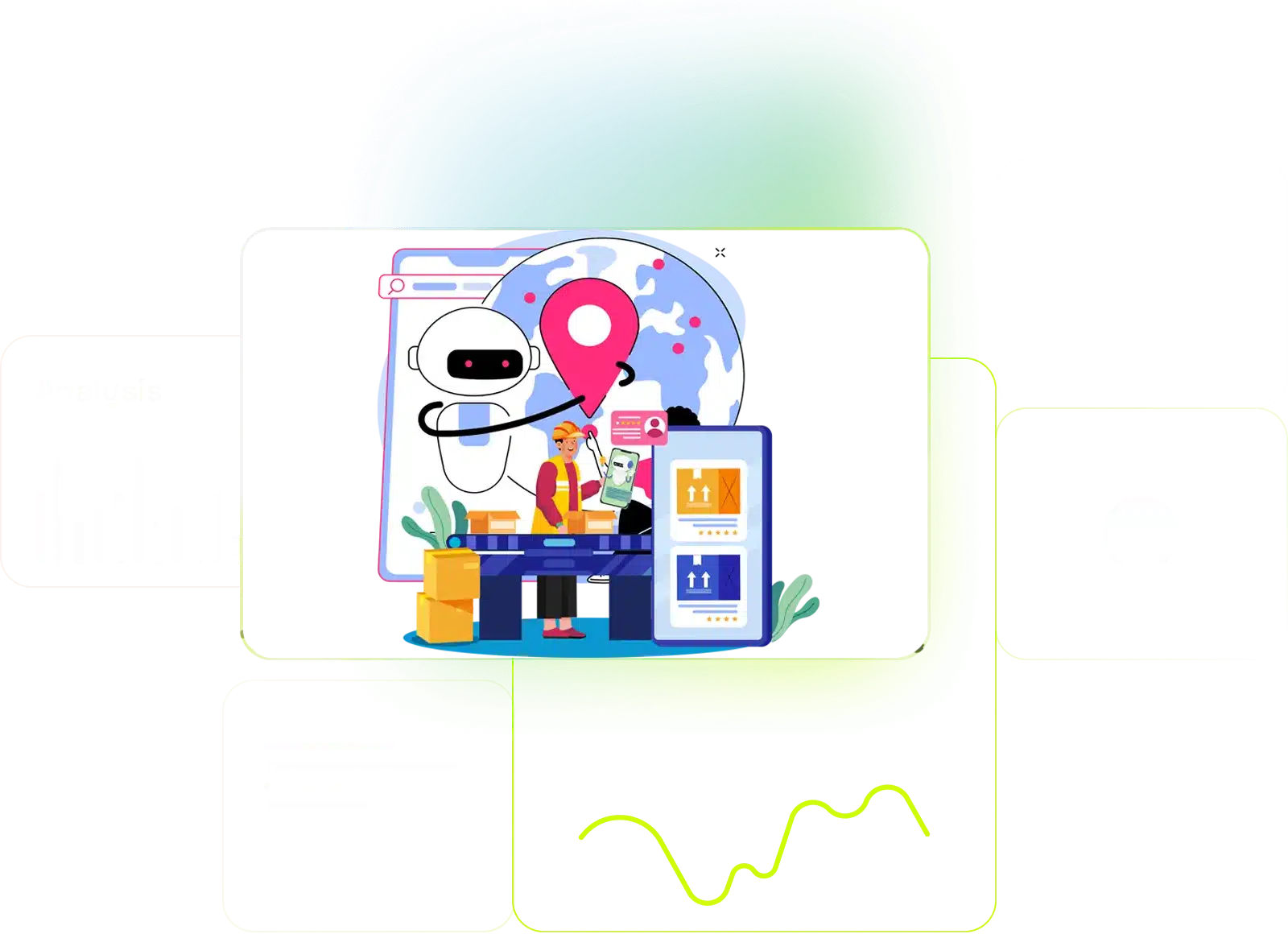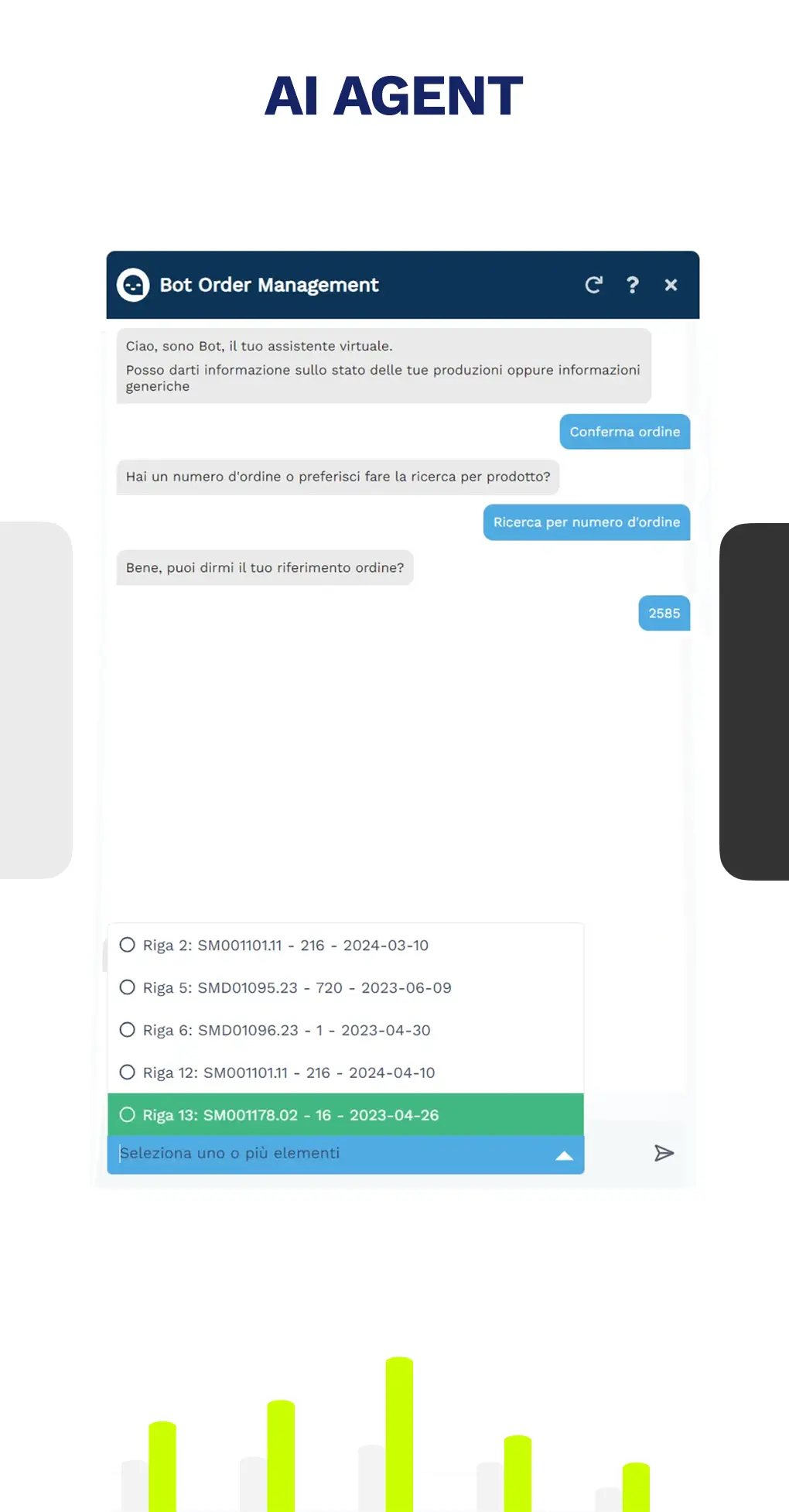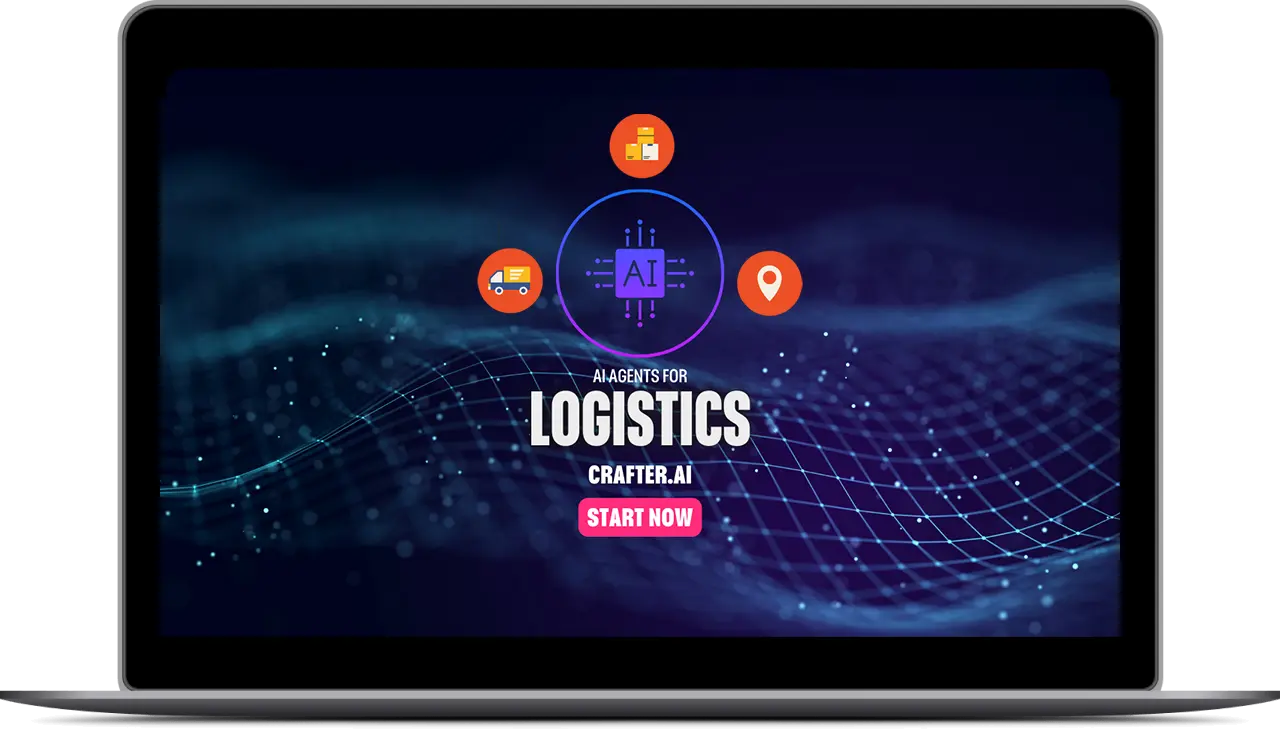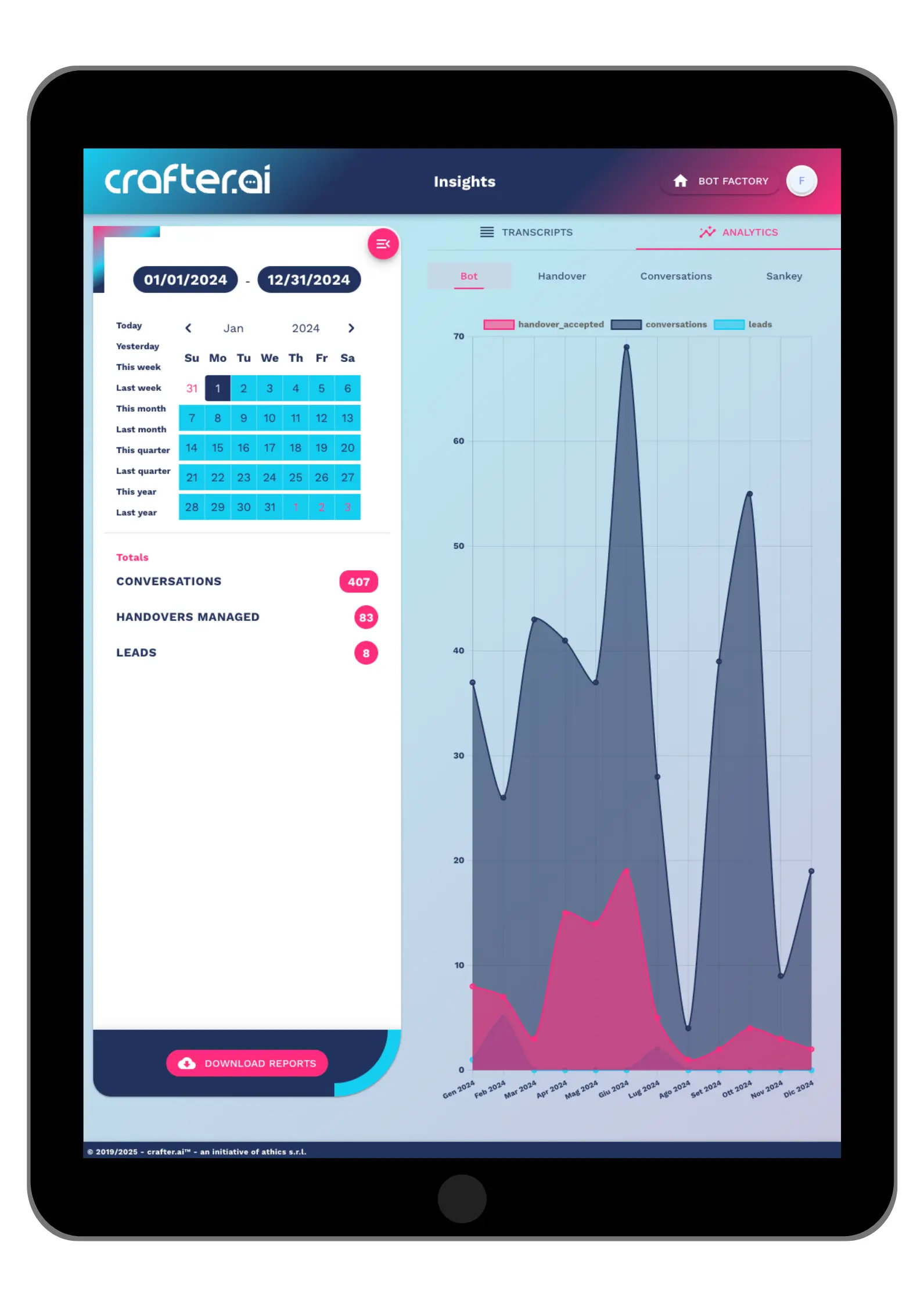Supply Chain Chatbots
Not only do they speak the language of your ERP, they can also order supplies, assign tasks, generate reports, and more.
Companies that integrate Logistics ERP Chatbots into their organization are taking supply chain efficiency to a new level.

Automation
Report generation and order management.
ACCESS TO DATA
Inventory and shipping status information.
Customer Satisfaction
Instant answers to customer questions, improving customer experience and increasing satisfaction.

Supply Chain Chatbot Use Case
Order management
Supply Chain Catobots verify the order identification code or shipment tracking number and retrieves the information via API call to the ERP management system. With a simple voice command, logistics workers and customers receive the information they need.
For example, in the manufacturing sector, the MW.FEP digital assistant supports the automated management of B2B orders: the AI agent for order management provides basic information on company services and facilitates the search for orders and products, with results in terms of process optimization, customer satisfaction, monitoring and traceability.
HOW TO CREATE SUPPLY CHAIN CHATBOTS
Faster and more optimised logistics and supply chain
Supply Chain chatbots optimize processes and mitigate critical issues by facilitating access to data in natural language.
Logistics ERP chatbots created with Crafter.ai can be easily integrated via API into the ERP management system, to access the status of an order or identify the location of a product.
The LLM technology within the Crafter.ai platform allows you to create and manage the knowledge base to support interactions to ensure reliable and precise responses on every channel.
The RAG document management system allows you to integrate documents such as catalogs and manuals into the knowledge base and to limit the response perimeter of the social media chatbot.


Supply Chain Chatbots Analytics
Access to conversation data allows you to monitor and optimize logistics and supply chain processes, set the right KPIs for service quality, and identify areas of criticality and improvement to benefit the user experience.
Supply Chain Chatbots
Application Overview
Warehouse management
They support the inventory verification process, return updates on the location of products and quantities to be replenished.
Shipment tracking
They allow you to track shipments in real time, report any delays or problems, and update customers.
Training and support
They make it easier for staff to access information, helping to reduce training and onboarding times.
Orders and supplies
They track purchase orders upon customer request, send notifications in case of delays or anomalies directly in chat, on WhatsApp or via email.
Reports and dashboard
Instant reports on logistics KPIs such as delivery times, warehouse efficiency or transportation costs.
Customer Experience
They provide order updates, forward return requests or complaints, answer real time questions
Supply Chain Chatbots Numbers
Efficiency & Productivity
According to McKinsey data, AI-based automation can increase business productivity by up to 40%, while reducing operating costs and improving efficiency.
The global market for artificial intelligence (AI)-based ERP chatbots is expected to reach a value of approximately $46.5 billion by 2033.
According to market data, 60% of companies plan to integrate AI into their ERP systems by 2030.
AI-based analytics for forecasting is expected to reduce maintenance costs by 18% and operating costs by 25%.
Manufacturing remained the leading vertical with a 23.2% market share for AI-based process optimization.
%
Increased business productivity
%
Companies planning to integrate AI into their ERP
%
AI Market Share in Manufacturing
Supply Chain Chatbots
OUR CUSTOMERS
The innovation entrusted to Athics, with the development of a virtual assistant, allows us to guarantee a rapid and qualified flow of information transfer, give precise answers that enhance the experience of our customers and draw on conversation analytics data, which we can use to improve our services.
Insights
“AI is a moving target. It is not stationary, it is ambitious, because what was considered AI 30 years ago – or even 20 years ago – is no longer considered cutting edge. It is always something that is beyond our reach”. – Chris Caplice, Executive Director of the MIT Center for Transportation and Logistics.
How logistics ai chatbot transform industry 4.0
Logistics AI chatbots are a game-changer in a world where demand is increasingly volatile, costs are rising, and labor shortages are disrupting processes. AI has become the backbone of end-to-end orchestration strategies, transforming supply chains from rigid systems to flexible, responsive, and intelligent ecosystems.
Chatbots in manufacturing
According to BCG (Boston Consulting Group) the enabling technologies of Industry 4.0 are the following: Autonomous Robots; Big Data; Cloud Computing; Internet of Things (IoT & IIoT); Cybersecurity; System Integration; Simulation; Augmented Reality (and Virtual Reality); Additive Manufacturing (3D Printing).
Supply Chain Chatbots are included in the “advanced automation” technologies.
ERP Chatbot per la gestione degli ordini
The MW.FEP order management supply chain chatbot supports the automatic B2B order management process in the manufacturing sector: it provides general information about the company’s services and facilitates the search for orders and products.
